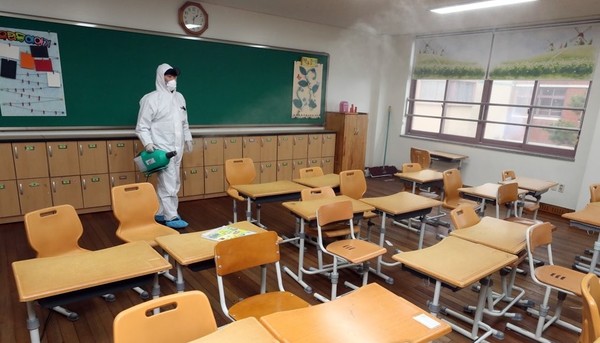
"Who should go to school first in the era of a pandemic?", asked Professor Jang Dae-ik at Seoul National University, who starred as a lecturer in JTBC Lecture, which aired on August 25th. He said that in Korea, high school seniors were the first and that there was little disagreement about it showed that Korea is a college entrance exam-oriented society. And he expressed his wish for younger children to be a priority to go back to school. In fact, lower grades of the elementary school joined the online class behind most other students, and high school seniors were the first to start face-to-face class. Lower grades of elementary school, who spent more than half of their first semester at home instead of at school, are currently experiencing a lack of proper education as their non-face-to-face classes have extended to the second semester due to the spread of COVID-19. As a result, concerns about their lack of learning and development are also growing. As COVID-19 is expected to be prolonged, it is necessary to consider the education and care of socially disadvantaged children.
First of all, their lack of basic learning is a concern now. Lower-grade education is a step to learn basic knowledge such as basic math or reading Hangeul that is required for any further learning. However, online classes are less effective in learning these basic courses due to poor concentration or lack of direct feedback from teachers. In the case of double-income, multi-child, or economically vulnerable families who have difficulty in managing their children’s online classes, the damage of children is worse. Lack of basic learning is dangerous in that it can lead to underachievement in later senior grade learning. However, even more serious problem is the lack of developmental education. School is not simply a place to acquire knowledge and information. Children learn how to form relationships with others through various experiences with their peers and teachers within the school, and are socialized in the process. But as schools are not open, children are currently not getting such developmental education. According to a survey conducted in April by the ChildFund Korea, 46.8 percent of elementary school students stayed home without a guardian during the daytime on weekdays, which was originally the time that they would be at school. Also, the percentage of respondents who said they didn’t spend time hanging out with their friends rose sharply to 56.3 percent from only 10.3 percent before COVID-19. According to the explanation by Park Se-kyung, director of the Korea Institute for Health and Social Affairs, children can experience a ‘developmental crisis’ if they fail to achieve their major development tasks, which could have a fatal impact on overall growth and development. In fact, in an interview with Yonhap News Agency in September, an elementary school teacher in Gimpo, pointed out that “Children who lack social skills become socialized by seeing and imitating their peers, but the opportunity has disappeared now.”
Entering the post COVID-19 era, many education experts are discussing the non-face-to-face education system based on digital technology. Non-face-to-face education is of course necessary for the future. But trying to replace all education with it is dangerous. This is because the physical space where children meet and communicate with each other is irreplaceable. COVID-19 has imposed restrictions on many people's lives, but for children who are still growing, the restrictions should be minimized. Social attention and efforts should prioritize these children.

